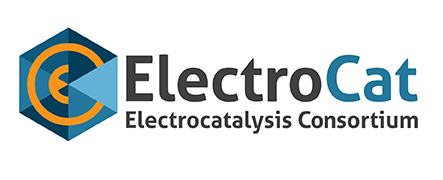Accelerating the Deployment of Fuel Cell Systems
The ElectroCat (Electrocatalysis) Consortium is aimed at increasing U.S. competitiveness in manufacturing fuel cells and hydrogen production water electrolyzers by addressing the primary challenges to the widespread implementation of this technology. The precious metal electrocatalysts that are the current standard in fuel cell and electrolyzer systems are expensive and restrict the ability to develop devices that are cost-competitive with traditional power and hydrogen production technologies. In this sense, catalyst design represents the most pressing material barrier related to fuel cell deployment and is also a critical barrier related to electrolyzer deployment.
ElectroCat, now in its second phase (ElectroCat 2.0), is addressing this barrier by accelerating the development and deployment of platinum group metal-free (PGM-free) electrocatalysts in low-temperature fuel cells and electrolyzers. To do this, the Consortium is employing a systematic approach in which potential catalysts are synthesized and analyzed rapidly and comprehensively using high-throughput, combinatorial methods. These in turn are guided by computational work and the fundamental electrocatalysis and materials knowledge housed across the national laboratory network. Streamlined data sharing with industry and academia partners is critical to the ElectroCat approach, rapidly building an understanding of PGM-free electrocatalysts across the field and ultimately, enabling the incorporation of those materials into next-generation fuel cells and electrolyzers. ElectroCat 2.0 leverages progress in PGM-free fuel cell catalyst development made by the original ElectroCat Consortium (2016-2020) to drive further innovation in fuel cells and applies its proven experimental and computational methods to tackle PGM-free catalysts for electrolyzers.
ElectroCat is funded by the Hydrogen and Fuel Cell Technologies Office (HFTO) in the U.S. Department of Energy Office of Energy Efficiency and Renewable Energy. ElectroCat is part of the U.S. Department of Energy’s Energy Materials Network.
Go to the ElectroCat Data Hub (opens in new tab).
Learn more about ElectroCat's capabilities